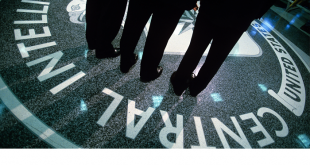The idea of a “Global South” is quickly gaining purchase in America’s own backyard.
The Russo-Ukrainian War and the Gaza-Israel conflict have brought an uneasy reawakening of the differing strategic interests of the “Global South” and “Global North.” Although the term “Global South” is an ill-defined, twenty-first-century conceptual re-imagining of the Cold War-era Non-Aligned Movement, it indicates that a significant portion of the world is searching for an independent path between membership in a democratically-oriented U.S.-led camp or allegiance and subjugation to a competing authoritarian, loose “buddy” system coalesced around China and Russia.
In its broadest sense, the Global South concept offers an alternative to choosing a side, allowing countries to keep all economic options open. In Latin America and the Caribbean, Brazil’s President Luiz Inácio Lula da Silva is a vocal spokesperson for the Global South, as are Colombia’s Gustavo Petro and Barbados’ Prime Minister Mia Mottley. Although the Global South remains largely notional and lacks a cohesive organizational body, it is creeping into Latin American and Caribbean foreign policies. Thus, it is a concept that Washington needs to understand better whoever sits in the White House on January 20, 2025.
The term “Global South” is both useful and controversial. Chile’s former ambassador to China, Jorge Heine, provides one potential definition. He points to a “potentially significant global realignment” among a group of countries “that were mostly at the receiving end of imperialism and colonial rule…Given the imbalanced past relationship between many of the countries of the Global South and Global North—both during the age of empire and the Cold War—it is little wonder that today many opt not to be aligned with any one great power.”
Most Global South countries are searching for some level of independence and flexibility in their interaction with global strategic centers of power—Washington, Beijing, and Moscow. At the same time, the Global South concept must find a balance with the BRICS+ grouping. Its founding members were Brazil, Russia, India, China, and South Africa. China has worked hard to give this organization a Chinese stamp, supporting de-dollarization, its own development bank, and calls for a multilateral global system. The BRICS+ membership recently expanded to include a handful of new countries. However, even among the BRICS+ members, the “Global South” identity is not overwhelming. One of the countries offered BRICS+ membership, Argentina, opted out in the wake of the election of right-wing Javier Milei as president.
Argentina’s withdrawal highlights the challenges of a common Global South platform within Latin America and the Caribbean. Its early impetus was largely driven by Brazil’s President Lula, who has expressed global ambitions, including as a peacemaker in the Russo-Ukrainian war (with little success), an advocate for South American unity, and a spokesperson for dealing with climate change. Probably the strongest card in Lula’s hands for Global South leadership is food security, which is backed by Brazil’s leadership in soy, meat, coffee, and sugar exports. Other major Global South leaders, like China, Russia, and Saudi Arabia, as well as many developing economies, are reliant on Brazil’s agricultural exports.
Events have not favored Lula’s push to make Latin America and the Caribbean a core part of the Global South. The Brazilian leader faces substantial challenges at home, including an anemic economy and a polarized political landscape. Regionally, Lula’s Global South aspirations are outflanked by problematic neighbors, ranging from the troublesome and regionally divisive Maduro regime in Venezuela to an emerging hardline law-and-order conservative community spearheaded by Argentina (President Milei) and El Salvador (President Bukele), let alone allies among U.S. Republican political circles. At the same time, the Russo-Ukrainian War forces an uneasy diplomatic dance, notably among smaller Caribbean and Central American states, which have a long history of external pressures, and the practical reality that the key belligerent—Russia—and its primary strategic counterforce—the United States—have active interests in the region.
The Gaza conflict is more problematic. Argentina is pro-Israel, with President Milei visiting Israel in February 2024 and declaring that he was moving his country’s embassy to Jerusalem from Tel Aviv, a move that upset many Arab countries but aligned the Latin American country with the United States. Friction in Argentine-Brazilian relations is also rooted in Milei’s rejection of the BRICS+ membership, which had been sponsored by Lula, and the Argentine leader’s labeling Lula an “angry communist” and “socialist with a totalitarian vocation.”
In sharp contrast to Argentina, Brazil supported South Africa’s initiative at the International Court of Justice (ICJ), which in December 2023 alleged that Israel was—and is presently engaged in—committing genocide against Palestinians in Gaza and withdrew its ambassador to Israel in May. Lula has also compared Israel’s actions in Gaza to the Holocaust and recalled his ambassador to the country. Colombian President Petro cut diplomatic ties with Israel and suspended coal exports to the Middle Eastern country until the “genocide” in Gaza stops. Elsewhere, Belize and Bolivia terminated their diplomatic ties with Israel, while Chile and Honduras recalled their ambassadors.
U.S. policy responses to the above developments are not driven by concern over an emerging Latin American Global South consensus but by the more immediate impact of a “New Cold War,” anchored by Beijing’s effective use of economic statecraft. China’s economic offerings push notions of a Global South consensus toward a more disruptive anti-U.S. or anti-Western coalition. Beijing’s Global South leadership pitch stresses its own distasteful experience at the hands of Western imperialists and claims that it is a developing country dealing with many of the same challenges as the small, post-colonial states of Latin America.
China is the leading trading partner for several Latin American countries, including Brazil, Chile, and Peru. It is a source of foreign investment and a major force in local infrastructure development (mainly in telecommunications, digitalization, and green energy). Beijing markets its engagement with regional countries as a supposed win-win option for distressed states. China’s pitch is that the U.S. is a declining power, no longer able “to prevent the continent from seeking autonomy and development based on Latin American countries’ own interests.”
However, China has its own set of problems in its bid for Global South leadership. While much of Latin America has mixed emotions about the United States, there is little desire to become part of a greater China. Moreover, Chinese predatory trade practices have caused resentment. In 2024, this was evident when Brazil, Chile, and Mexico raised tariffs on Chinese steel to protect domestic companies, actions taken after announcements of massive layoffs due to China’s flooding markets with cheaper steel.
One issue where the Global South movement garners sympathy and may gain more followers in Latin America and the Caribbean is climate change. Caribbean states are emerging as leaders on the climate change issue. Barbados’ dynamic Prime Minister Mottley, who created the Bridgetown Initiative to tackle climate change, in part by reforming international lending institutions to facilitate financing better. The Caribbean focus on the consequences of a climate disaster also highlights a wider global community of smaller states with different needs than their larger Global South counterparts, especially in dealing with climate change. This is an area where the U.S. has targeted policy responses, including the U.S.-led undertaking, the Small and Less Populous Island Economies (SALPIE) Initiative, as well as its support of the UN’s Small Island Developing States Initiative (SIDS).
Regardless of their political orientation, there is hard work ahead for U.S. policymakers to reconcile widening domestic fissures with national interests abroad. Moreover, ongoing conflicts, such as in Ukraine and Gaza, a broadening range of tensions with China, and intensifying geopolitical and geoeconomic competition over Africa and Latin America threaten to erode an already fragile U.S.-led post-WWII order. That order remains generally democratic, private sector-led, and seeks to uphold the international rule of law. For that system to prevail, the United States and other key parts of the Global North must make their case to the Global South that there is more to be had by working with the forces of liberalism than being swayed by the allure of authoritarian systems that include development failures like Cuba, Nicaragua, Venezuela, Iran, and North Korea.
For U.S. policymakers, Latin America and the Caribbean present a special concern compared to most regions, as relations are grounded in the realities of geographical proximity, immigration, transnational crime, energy security, climate change, and trade. Failure to understand the emerging Global South in the region, no matter how nascent a concept it may be, risks letting that part of the international order slip away and fall under the malevolent influence of Beijing and Moscow.
By: Scott B. MacDonald , Georges Fauriol
Dr. Scott B. MacDonald is the Chief Economist for Smith’s Research & Gradings, a Fellow with the Caribbean Policy Consortium, and a Research fellow with Global Americans. Prior to those positions, he worked for the Office of the Comptroller of the Currency, Credit Suisse, Donaldson, Lufkin and Jenrette, KWR International, and Mitsubishi Corporation. His most recent book is The New Cold War, China and the Caribbean (Palgrave Macmillan 2022).
Georges A. Fauriol is a senior associate at the Center for Strategic and International Studies (CSIS), a fellow with the Caribbean Policy Consortium (CPC), and a member of the Think Tank Haiti (TTH) Steering Group, a partnership of Université Quisqueya in Haiti and the Inter-American Dialogue. He is also a senior advisor with the United States Institute of Peace (USIP).
 Tehran Institute For International Studies tiis
Tehran Institute For International Studies tiis



